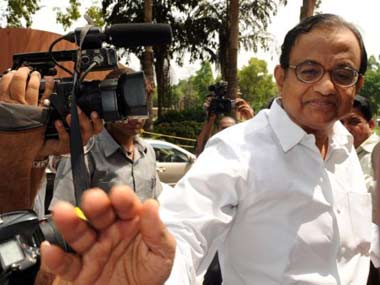By Madan Sabnavis
If there are any Doubting Thomases left, they should prepare to shed their doubts on what the UPA conjurers can come up with. They should be pleased with the five-point reforms cleared by the Cabinet last Thursday, including pension and insurance FDI.
Whether these plans will actually be implemented can be a matter of conjecture, but the fact that, after tough calls on fuel prices and FDI in retail, the government has continued to stick its neck out for further controversial issues is commendable. Clearly, economic motivation has transcended political barriers.
The set of five measures include three tough ones, and two easier measures.
First, FDI in insurance is pragmatic as it allows up to 49 percent foreign ownership and does not really change the status quo on who controls insurance entities. While this could be interpreted as being the first step before allowing majority ownership, in the present form it can only be helpful for the industry which needs capital. Given that India is an underinsured country, and that there is need to provide cover to more people in the life and non-life segments, especially health, FDI is a good solution. The industry typically takes around 5 to 10 years to break even.
Second, pension funds are to be allowed to get in 26 percent foreign equity, which is again useful, as this concept has not caught on in the country; and we need well-capitalised funds to go all out and inculcate this culture in a country where there is no social security worth mentioning. Again, by keeping the FDI limit below 49 percent, there can be no harm really. Those antagonistic towards FDI do not really have any economic logic behind them since it is merely sign of xenophobia.
Both these measures will be useful also for the development of a long-term debt market which, in turn, can support the needs of infrastructure. In fact, the other policy measure relating to infrastructure development funds, also announced simultaneously, falls well within this bowl of twin reforms. Today the debt market is handicapped by the absence of long-term players on the lending side. Insurance and pension funds typically invest in long-term paper and there is also serious talk of these funds being allowed to invest in non-AAA-rated paper, possibly AA-rated papers.
[caption id=“attachment_481746” align=“alignleft” width=“380”]
 The fact that the government has single-mindedly pushed for moving the policy framework forward provides hope.[/caption]
The fact that the government has single-mindedly pushed for moving the policy framework forward provides hope.[/caption]
This being the case, bringing in foreign capital will enlarge these businesses and provide funding to infrastructure projects. If passed by Parliament, the measures will do a lot of good for not just these sectors but also the debt market and the infra sector.
Third, the Forward Contracts (Regulation) Act has finally found some protagonists. This Bill has been moving through the corridors of parliament since 2003 and never found its way to the discussion table. In fact, absence of interest and sheer hostility at times has kept this bill in limbo. Making the FMC (Forward Markets Commission) an autonomous body will help put it on a par with Sebi and bring about reforms in a market which has largely not been able to address the needs of farmers.
The commodity futures market is skewed heavily towards non-farm products due to constant bans being imposed, ostensibly motivated by intransigent political parties who have failed to see merit in these markets. While the announcement talks of introducing options, this may still be far off for farmers who have yet to be introduced to futures trading due to various reasons. The FMC has to take firm steps to bring farmers on the futures platform before allowing options.
The MSP (Minimum Support Price) is really an option for the farmer as he has the option to sell at this price to the Food Corporation of India. But having it on a futures contract has to mean educating farmers. The onus is clearly on the FMC to make this happen.
These three moves are, however, controversial and would need to have Parliament approval. This means the Congress party has to get the nod from other allies. There are lots of uncertainties before we can pop the bubbly.
The other two measures are relatively non-controversial and would not meet with serious opposition. The amendments made in the Companies Bill for bringing about better governance practices will strengthen the corporate fabric. Lastly, the Competition Act is also timely at a time when we need to have clarity on what is fair and unfair given that issues like mergers and takeovers are getting more frequent. Besides these measures, the approval of the 12th Plan is also significant as the plan period has already started and an overall roadmap is necessary for economic agents.
How can one evaluate these measures? They can be seen as boosting the investment environment, when finally passed, and probably help in the implementation of the 12th Plan which requires resources. The other measures announced between FDI in retail and this five-point programme - the reduction in withholding tax and more leeway for external commercial borrowings (ECBs) and efforts to get cash-rich public sector units to invest - can be seen as complementing these reforms.
There is also some expectation that other sticky issues - like land reforms and the environment stance - will be addressed along the way. The fact that the government has single-mindedly pushed for moving the policy framework forward provides hope. But for the sake of immediate growth, the focus during the second half of the year can be on restarting all projects that have been stuck or have to be undertaken as per the budget. This can prop up real growth and probably kickstart the economy, albeit in a mild manner. We need now action on these issues.
The author is Chief Economist, CARE Ratings. These views are personal
)